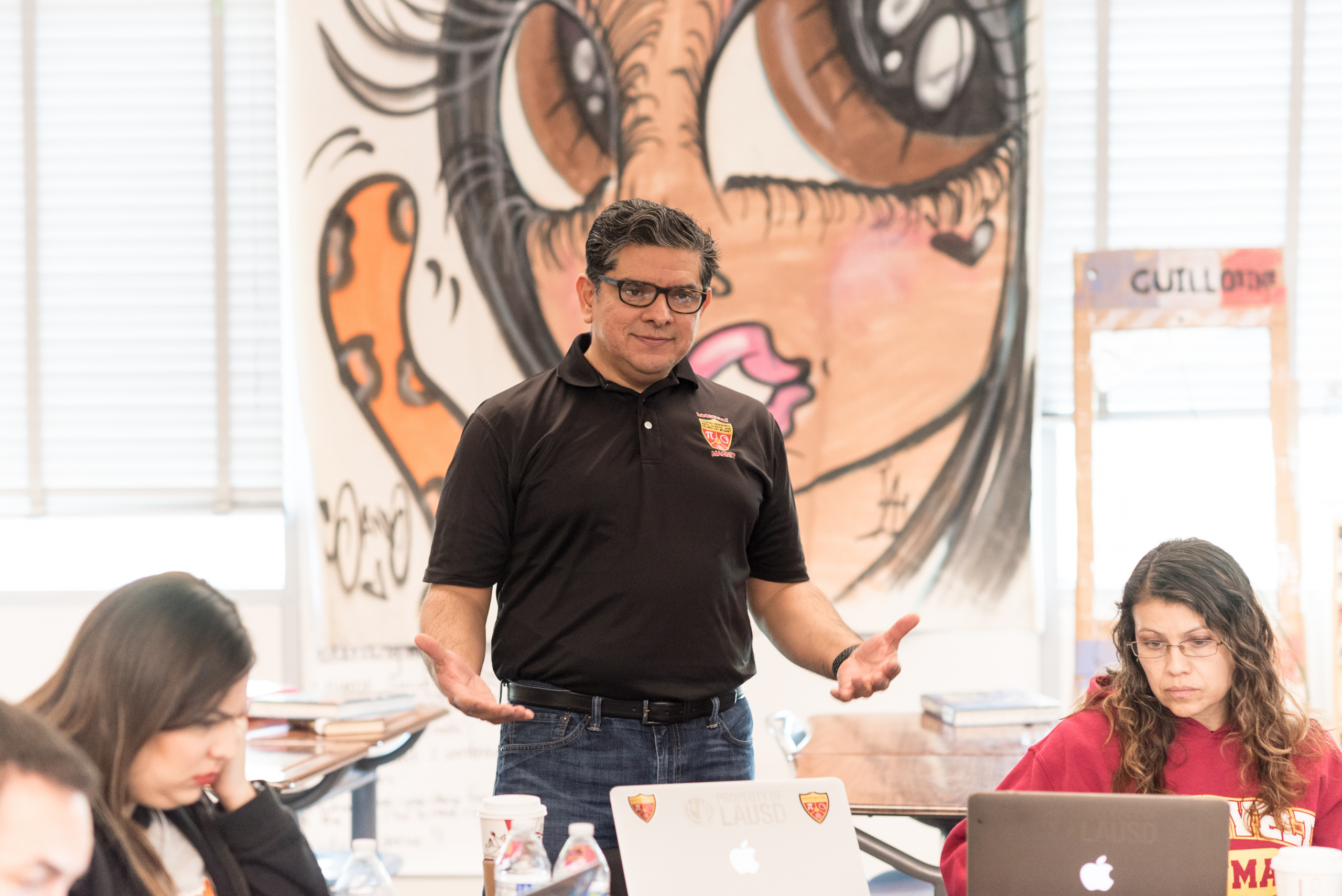
Leadership Development
inside our Practice
We believe that great schools cannot exist without development and support for the adults who surround our students.

Moving schools from relying on a few strong teachers to complete systems in which impactful teachers are the norm requires visionary leadership that builds high-performing cultures of support in service of all students reaching their college completion goals. The success of school leaders and teachers, in turn, requires empowerment of families and communities to advocate for and support student learning. This interconnectedness undergirds the Partnership’s approach to leadership development.
What Sets the Partnership Approach Apart
We build the capacity of school leaders, educators, and families to develop and sustain effective instructional and operational systems, and we intentionally embed coherence across learning outcomes.
We facilitate professional learning and leadership development opportunities for principals, assistant principals (APs), teacher leaders, teachers, and families that align with schoolwide goals.
We pair formal leadership development seminars and institutes with focused school-site supports for staff that include one-on-one coaching, observations and walk-throughs with Instructional Leadership Teams (ILTs), ongoing check-ins to monitor and evolve plans, and service of site-based systems building.
We build the capacity of parents as partners in student learning through our signature Parent College program and support their continuous development through site-based Family Action Teams. For those seeking deeper leadership opportunities, we facilitate United Parents for Educational Justice (UPEJ), a parent-led group of parent advocates from our schools.

“Providing time to meet as an Instructional Leadership Team twice a year, away from the school site, is an invaluable opportunity that allows our team time to collaboratively plan — then reflect on — our goals, strategies and data.”Katherine NelsonPrincipal, 107th Street Elementary
Our Leadership Development Offerings

For School Leaders (Principals & Assistant Principals)
We invest in school leaders through intensive and customized coaching, professional development, advocacy and supports.

For Teachers
We invest in teachers through comprehensive professional learning, leadership development and coaching.

For Families & Communities
We invest in parents to advocate for their children’s education and help facilitate change in their school communities.
“The innovative thinking and collaborative spirit of the Partnership has made the vision of transforming schools through contextualized, accomplished leadership a reality — which ultimately makes high-quality teaching and learning within the Partnership more accessible to all students.”Annamarie M. FrancoisExecutive Director, UCLA Center X

